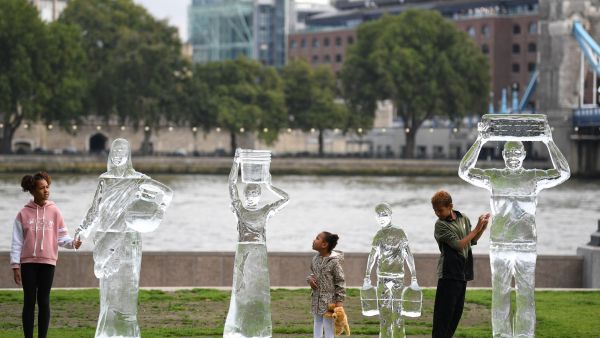A report on Thursday showed that climate-related disasters have affected the lives of at least 139.2 million people and killed some 17,242 since the beginning of COVID-19.
An additional 658.1 million people have been exposed to extreme temperatures, said the International Federation of Red Cross and Red Crescent Societies (IFRC) and the Red Cross Red Crescent Climate Centre in a release.
Last year, the United States faced 22 extreme weather and climate-related disaster events costing over $1B.
— The White House (@WhiteHouse) June 29, 2021
We can't afford not to act. That's why the Bipartisan Infrastructure Framework will invest $52B to help our communities become more resilient to a changing climate.
"The world is facing an unprecedented humanitarian crisis where the climate change and COVID-19 are pushing communities to their limits," IFRC President Francesco Rocca said at a press conference in New York presenting the new report.
"In the lead up to COP26, we urge world leaders to take immediate action not only to reduce greenhouse gas emissions, but also to address the existent and imminent humanitarian impacts of climate change," he added.
The 2021 UN Climate Change Conference, known as COP26, will take place in Glasgow, Scotland between Oct. 31-Nov. 21.
.@FEMA announced $5 billion in resilience funding to help communities prepare for extreme weather and climate-related disasters. This funding is critical as communities are working hard to protect themselves from the effects of climate change.
— Vice President Kamala Harris (@VP) August 9, 2021
"The massive spending in COVID-19 recovery proves that governments can act fast and drastically in the face of global threats," Rocca said.
"It is time to turn words into action and devote the same energy to the climate crisis. Every day, we are witnessing the impact of human-made climate change. The climate crisis is here, and we need to act now," he added.
This article has been adapted from its original source.








